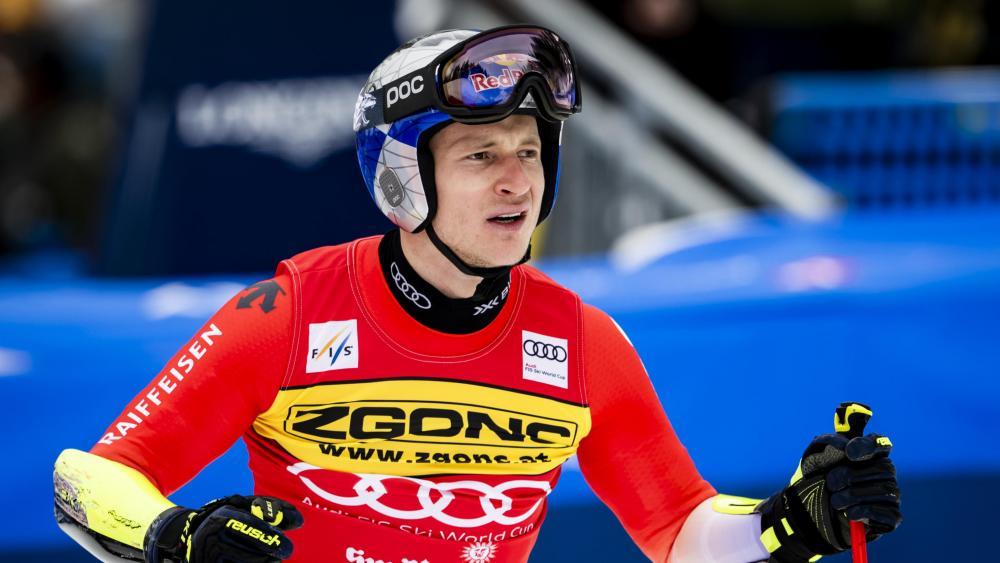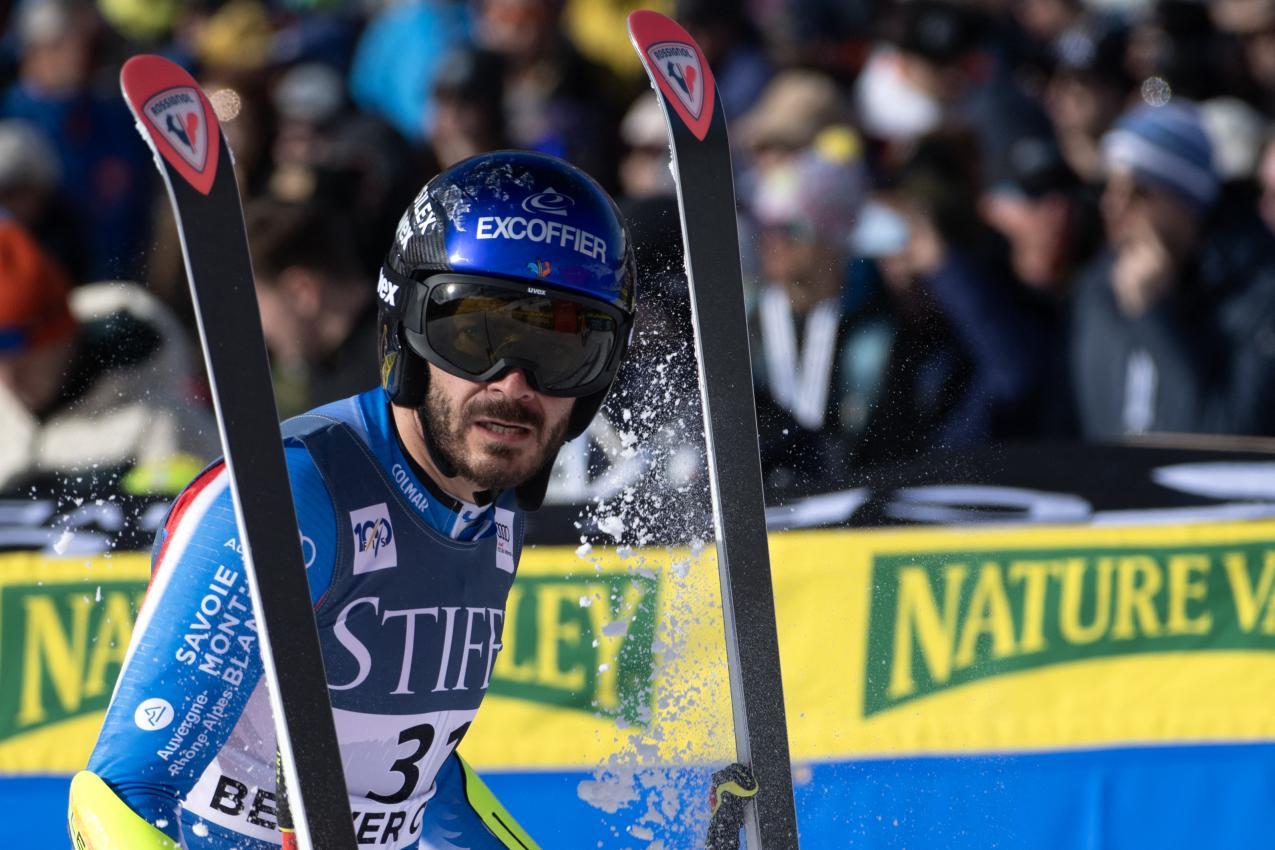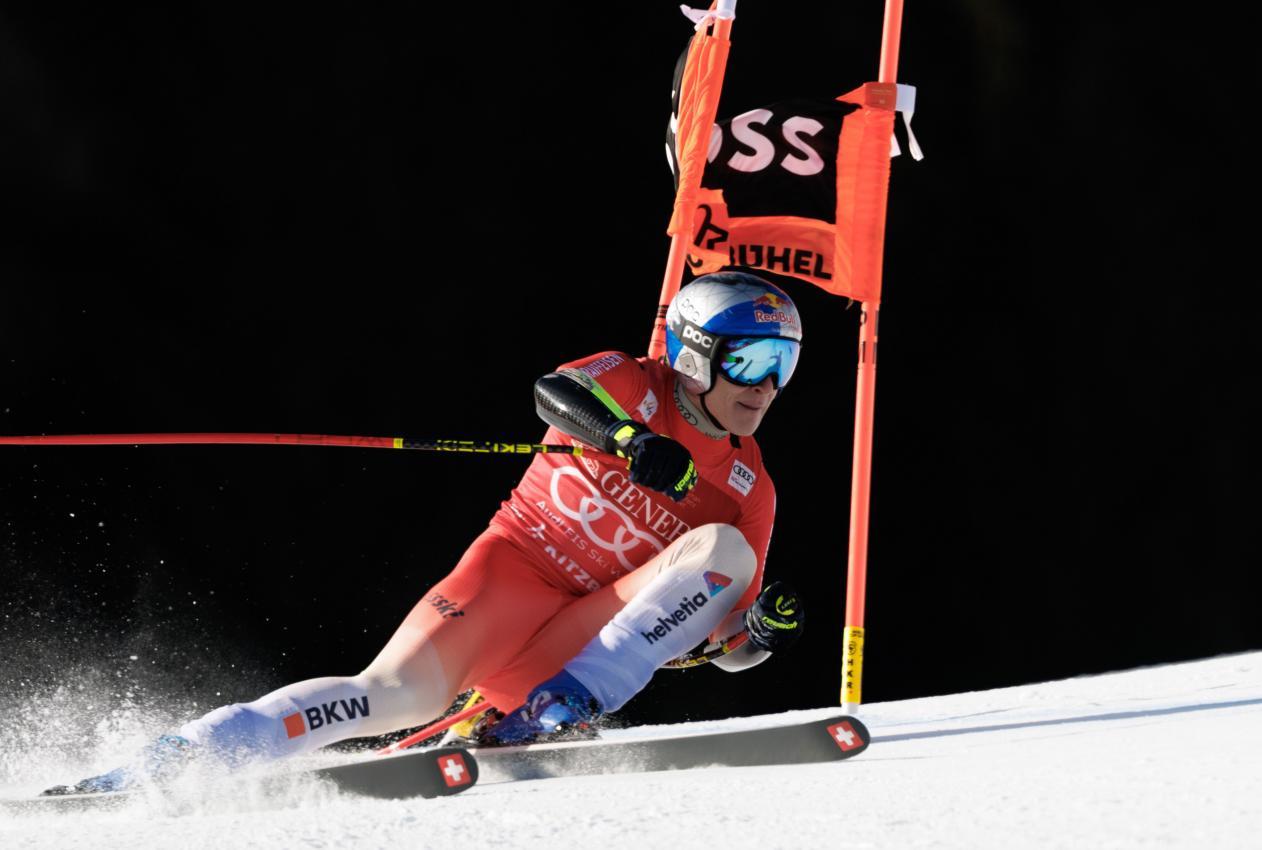
Marco Odermatt is annoyed by the new ban. © ANSA / JEAN-CHRISTOPHE BOTT
Odermatt in the middle: Controversy surrounding carbon ban
The use of carbon shin guards caused quite a stir during the past World Cup season. A ban on the issue has now caused quite a stir – and Marco Odermatt is right in the middle of it.
June 16, 2025
From: never
“If the International Ski Federation were to actually ban the wearing of these shin guards, that would be a huge nonsense for me and several other athletes,” Marco Odermatt ranted in an interview with the Swiss View about a week ago. At that time, the ban on the controversial carbon shin guards had not yet been approved – but now it has. As the FIS Council confirmed at the end of last week, ski boots are no longer permitted to have any additional, rigid elements. This is a blow, especially for the Swiss athletes around Odermatt.
In addition to Odermatt, his fellow countrymen Thomas Tumler and Lenz Hächler also use the custom-made braces to prevent shin splints and thus potential injuries. "If no alternative solution is found, I certainly wouldn't be able to compete in all races in the future," said the four-time overall World Cup winner, referring to the consequences for his career. However, the health aspect of using the carbon braces is only half the story.
The Carbon Crux: More direct, faster, more dangerous
The hard and rigid protectors not only protect the athletes from numerous impacts and the effects of unevenness on the slope, but also enable a stronger transfer of power from the boot to the shin. In other words, Odermatt and his teammates can ski a more direct and, above all, faster line – which also poses its own dangers.Cyprien Sarrazin suffered serious injuries, partly due to the carbon pads. © AFP / JASON CONNOLLY
The constant play with the carbon limit claimed many victims in the 2024/25 season, the most prominent among them being Cyprien Sarrazin. The Frenchman also used carbon frames, experienced a high, and celebrated major victories. However, his serious crash and injuries at the World Cup in Bormio revealed the downside of these custom-made products. A study by the University of Innsbruck ultimately confirmed that carbon frames pose a higher health risk.
Odermatt vs. Austria – criticism is countered
Odermatt doesn't want to deny the advantage in terms of speed; rather, he sees this as one of the reasons for the ban. After all, the Swiss ski aces have enjoyed a season of dominance behind them – much to the annoyance of their great rival Austria. "It's certainly also an act of defiance by the Austrians. They've all tried it, but apparently didn't get any benefit from it," Odermatt suggested. "It simply solves the personal problem more. That's certainly one reason why they're banning it."Marco Odermatt doesn't see much merit in the ban. © APA / TOBIAS STEINMAURER
FIS Secretary General Michel Vion was not going to let Odermatt's criticism stand and defended the ban. "Of course, we understand the athletes who want to be as fast as possible and put this goal above all else. And in some cases, these pads can also have a positive effect on health problems," he explained to the Kronen Zeitung"We have scientific data that confirms the increased risk of injury, so it is our duty to intervene."
Loophole for Odermatt and Co.
At least there's a small loophole available to the disgruntled Odermatt and his cronies. If a custom-made device is necessary for medical reasons, it's permitted – however, the material must be soft, such as gel or foam. Therefore, the athletes don't have to do without their pads entirely. How this will affect their sporting results remains to be seen.Edit Profile
You have to sign into use the comment function.










Comments (0)